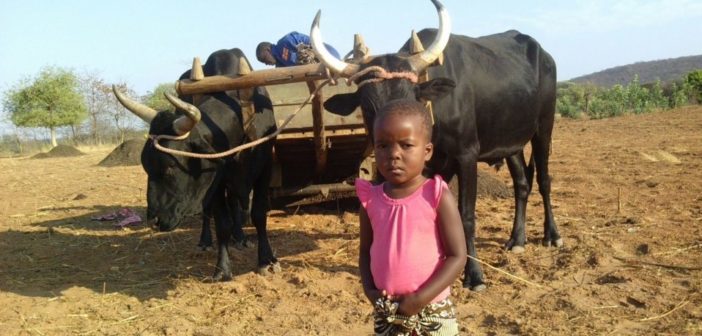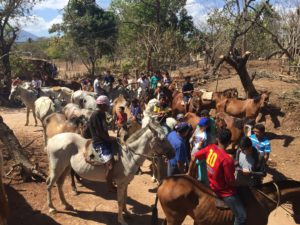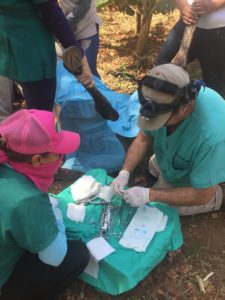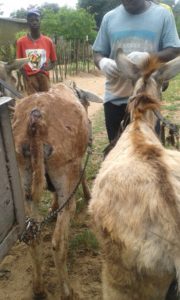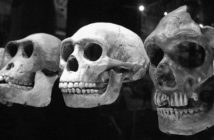Those familiar with Animal Aid Abroad will know that we send funding to help partner groups all over the world. Two of the newest additions to the family are groups in Nicaragua and Zimbabwe. We are happy to report that both partnerships have produced positive results already.
Recently, we continued our partnership with Nicaraguan veterinary non-profit Orprovet by helping to fund a clinic that provided free veterinary services to 456 horses. At the clinic, Orprovet founder Dr. Lester and his team performed 92 dental procedures, 100 hoof trims, and 25 surgeries. Most of the problems seen were due to malnutrition, parasites, wounds, lameness, and hoof and dental issues.
The clinic had a team of 12 veterinarians (11 from Nicaragua and 1 from the United States), 2 veterinary nurses, 28 veterinary students (3 from the United States and 22 from Nicaragua) and 2 assistants. There were at least 15 horses that needed follow-up treatment for bad wounds, lameness, hoof abscess, and parasitic diseases such as Habronema. Orprovet partnered with a local veterinary school, the Central University of Nicaragua, who let the clinic use their facility on the last day so they had more space to teach students.
Orprovet founder and CEO Dr. Lester said, “This is why I love this project. I want to keep these poor animals healthier so they can live a life without pain and suffering.”
Animal Aid Abroad is looking at expanding our assistance to Orporovet so they can reach more working animals, including oxen and donkeys.
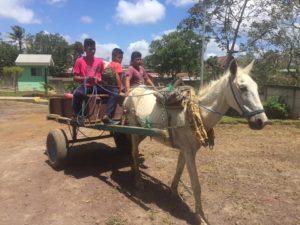
A working horse and three boys in Nicaragua. Poverty and lack of education about animal welfare contribute to poor working animal health, which organizations like Orprovet aim to address.
During the month of March, our new partner group Tikobane Trust visited 12 stables and reached 74 working donkeys and 28 cows in Zibabwe’s Mapani Village. Harness wounds are a major problem here, which Tikobane Trust is working to combat. Firewood traders carry big loads and they use up to four donkeys on one cart, which results in incorrect harnessing and the use of ropes and wires. In some cases, barbed wire was used to attach donkeys to carts. We have engaged the local police service and the forest commission to assist us with controlling overloaded carts so as to reduce harness wounds.
We also conducted workshops on donkey care in Zimbabwe, bringing together donkey owners and herders to educate and train them on proper handling of donkeys and other working animals. We also discovered that there is an outbreak of a lump skin disease in cattle around Magoli village and we have alerted the Department of Veterinary Service, who we will be working closely with.
Tikobane Trust was also excited to share the successful story of Charley the donkey, who we treated for very bad harness wounds. He was weak and thin, however after 7 weeks of treatment Charley is now looking good, with a shiny coat and a few recovering wounds. Charley is just one among the many success stories they have had in the last month.
Featured image: A young girl in Zimbabwe stands with her family’s oxen. These working animals are just some of the animals helped by the work of Tikobane Trust and Animal Aid Abroad. This image and all images in this story via Animal Aid Abroad.

